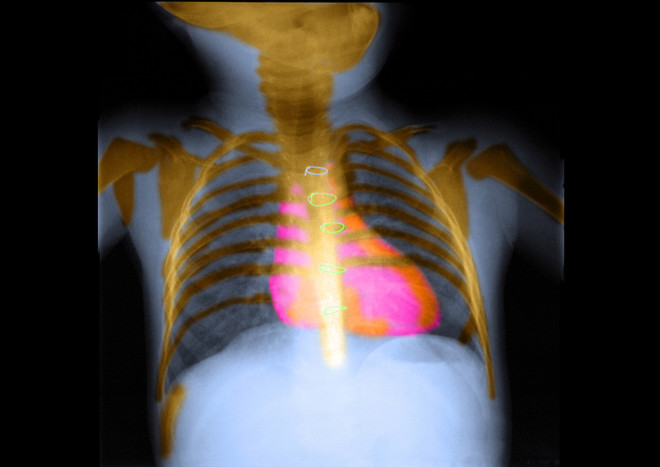Can X-rays be done on infants and when are they prescribed?
X-ray examination, or scanningof the body using electromagnetic waves, is carried out to detect hidden pathologies. The waves freely penetrate the tissues and all the flaws invisible to the naked eye appear on the resulting image. X-rays are prescribed for infants onlyvital indications. Photo: Getty Doctors are extremely cautious when prescribing X-rays to infants. But there are cases when it is difficult to make a diagnosis and conduct a course of timely treatment without such an examination. Such pathologies include:
X-rays are prescribed for infants onlyvital indications. Photo: Getty Doctors are extremely cautious when prescribing X-rays to infants. But there are cases when it is difficult to make a diagnosis and conduct a course of timely treatment without such an examination. Such pathologies include:
- injuries resulting from childbirth;
- nasal injuries, although exposure to the baby’s head is undesirable;
- purulent pathologies of the nasal sinuses, nasopharynx;
The course of these diseases is life-threatening.infant. Therefore, timely diagnosis and correct treatment are the key to the health of the newborn. The doctor decides how often and when to perform an X-ray, taking into account the severity of the child's condition.
How do x-rays babies
To carry out the procedure, please contactqualified specialists in centers with modern medical equipment. A parent who puts on a special protective apron remains in the office with children under 12. The baby's body, except for the part with pathology, is also covered with capes impermeable to radiation. The thyroid gland, testicles (boys), pelvic organs (girls) should never be exposed to radiation. They are always covered.
Harm and effects of X-ray examination
Potential for adverse effectsX-ray radiation is. It is small, but still exists. Parents should know that it is the doctor who takes responsibility for the need to perform the procedure. He decides to what extent the establishment of the correct diagnosis exceeds the possible risk of radiation. Modern equipment of diagnostic centers allows to reduce the time of radiation of the baby and minimize the risk of adverse effects. It is necessary to adequately assess the passage of X-rays for a newborn. But it is also useful to remember that modern life in megalopolises with an increased radiation background, radiation from household appliances and computers daily create the risk of receiving much more radiation than from an X-ray examination.









